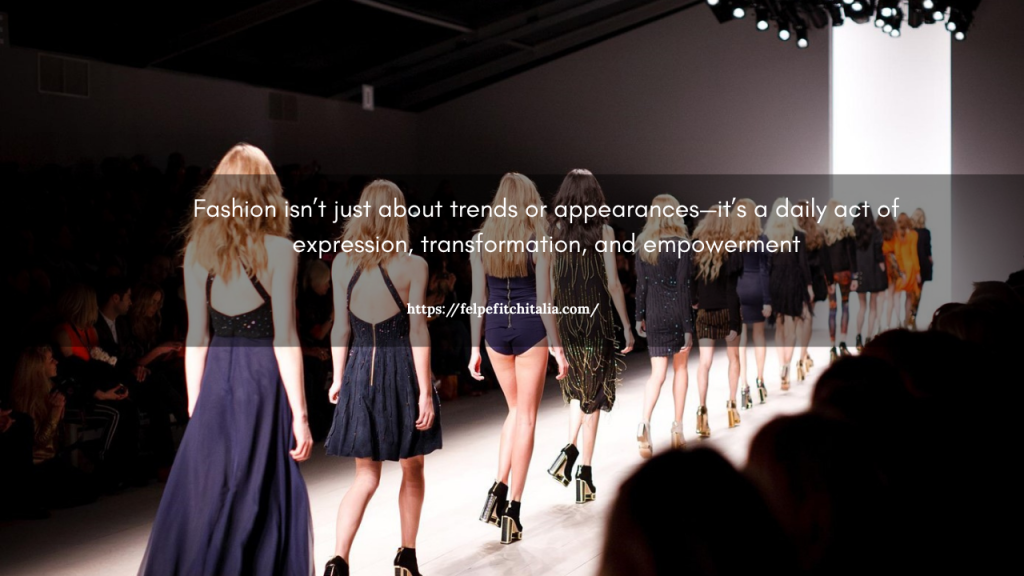
Fashion is more than just a daily routine—it’s a reflection of who you are and how you experience the world. From the moment you step out the door, your outfit becomes part of your identity, telling a story about your mood, values, profession, and personality. Whether consciously or unconsciously, the clothes you choose each day influence not only how others see you, but how you see yourself.
Clothing as a Reflection of Identity
What we wear often mirrors how we feel. A structured blazer might signal confidence and professionalism, while a flowy dress can convey creativity and freedom. Your wardrobe becomes a mirror of your internal world—projecting your self-image and even helping to reinforce it.
Over time, your fashion choices can shape your identity just as much as they express it. Someone who begins to dress more boldly may find their confidence increasing as they grow into that bolder version of themselves. The old phrase “dress for the job you want” holds truth—not just in a career sense, but in terms of who you want to become.
The Psychology of Dressing
Studies have shown that what you wear can have a real psychological impact. This is known as “enclothed cognition,” a term coined by researchers to describe how clothing influences the wearer’s mental processes. When you dress in a way that aligns with a specific role—be it a leader, artist, athlete, or innovator—you’re more likely to embody that role’s characteristics.
This isn’t about vanity; it’s about intention. Dressing with purpose sets the tone for your day. It boosts your mood, prepares you mentally for challenges, and builds self-respect. On days when you feel uncertain or off-balance, putting together an outfit that makes you feel strong or centered can create a much-needed mental shift.
Fashion and Routine
Your daily fashion choices become part of your personal ritual—an act of self-care, creativity, and discipline. This doesn’t mean you have to be dressed to the nines every day. Dressing the part is about authenticity, not extravagance. A fashion-forward outfit on one day and a cozy knit on another can both be meaningful, as long as they reflect how you want to show up in the world.
As you develop a deeper connection with your wardrobe, you’ll find that fashion becomes a daily opportunity to be intentional about who you are and how you feel.
Conclusion
Fashion isn’t just about trends or appearances—it’s a daily act of expression, transformation, and empowerment. The way you dress affects your mindset, your behavior, and your relationships. When you dress the part, you’re not pretending to be someone else—you’re embracing your best, most aligned self. Your clothes tell a story. Make sure it’s one that reflects who you are and who you’re becoming.
